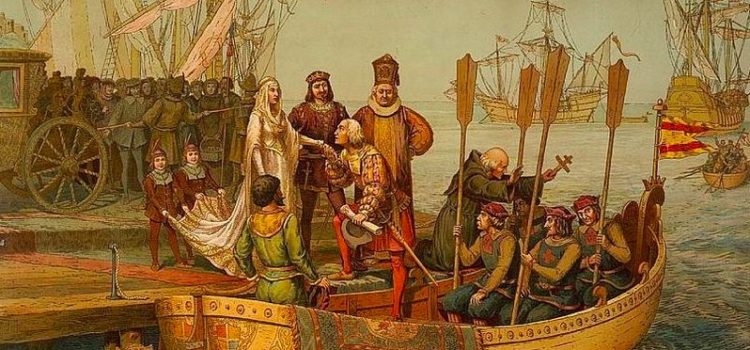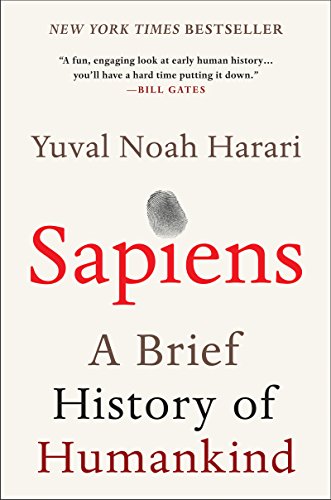

This article is an excerpt from the Shortform summary of "Sapiens: A Brief History of Humankind" by Yuval Noah Harari. Shortform has the world's best summaries of books you should be reading.
Like this article? Sign up for a free trial here .
How did Christopher Columbus’s voyages to the new world revolutionize the world? How did it contribute to the rise of capitalism and our attitude toward our own ignorance?
We’ll cover how Christopher Columbus’s first voyage and “discovery” of America forced people to confront their own ignorance. Then, we’ll look at how it spawned the marriage of capitalism and imperialism, forces that have defined our modern world.
Christopher Columbus’s Voyages: Ignorance of Ignorance
Although the thirst for knowledge seems natural to us now (in large part because we are the descendants of this mindset), it was unlike any imperial attitude in history. The Arabs, for example, believed they knew everything there was to know about the world. They didn’t conquer Spain, Egypt, or India to learn more. They conquered these nations to spread their own knowledge rather than gain new knowledge.
Prior to the 15th century, many Europeans, including Christopher Columbus, had the same attitude. Empires created and used world maps that were full of detail, even when those details weren’t actually known to be true. Whatever a mapmaker didn’t know, he’d make up. Rulers and the mapmakers they employed weren’t willing to acknowledge their ignorance.
Although we think of him today as the “discoverer” of America, Christopher Columbus falls in with the old guard of Europeans unwilling to acknowledge the ignorance of his times. The response to Christopher Columbus’s first voyage shows how he may have been the reluctant harbinger of a paradigm shift.
When Columbus reached what we now call the Bahamas in 1492 and named the people he found there “Indians,” it was because he believed he had reached what we now call the East Indies or the Indonesian archipelago. Columbus stuck to this claim for the rest of his life, even when, in 1502, Italian Amerigo Vespucci argued that the discovered area was a land previously unknown to Europeans and the Scriptures. It was unfathomable to Columbus and most of his contemporaries that there could be an entire continent completely unknown to Europeans and the Bible.
But the prevalence of this attitude soon started to wane. In the 15th and 16th centuries, Europeans started making maps with empty spaces, rather than filling unknown areas with false details or imaginary monsters. It showed they admitted their ignorance of the world. Further, the gaps in the map provided ambitious explorers the motivation to fill them. This was Christopher Columbus’s legacy, among others.
Christopher Columbus’s voyages and discovery of this “new” world jump-started the Scientific Revolution. It showed Europeans their ignorance about the world and demonstrated the occasional need to trust observations over Scripture. It also motivated Europeans to conquer these previously-unknown lands, and in order to do so, they needed to collect data on the geography, climate, plants, animals, and cultures of the Americas. They needed science to better prepare them to rule strangers. They established global empires and trade networks that brought isolated civilizations together. This was also when disparate cultures started to merge, forming a single worldwide society.
Christopher Columbus’s Voyages and Capitalism
Christopher Columbus’s first voyage was a turning point in the history of how we view our own ignorance. This set off the Scientific Revolution. The voyage was also a turning point in how humans viewed credit. Christopher Columbus’s voyage was immensely successful. His discoveries allowed Spain to conquer America and establish gold and silver mines and tobacco plantations. This success made it easier for other explorers to get their trips financed by governments and big businesses. Everyone wanted to make money off the next big discovery, so governments had to trust explorers.
This trust paid off. Explorers used credit to travel and make new discoveries. These discoveries resulted in the colonization of new lands. These colonies provided new sources of wealth. These profits increased the trust of governments in explorers. And the governments handed out more credit.
The system was mostly successful, but not all ships came back with new wealth and discoveries, and many didn’t come back at all. Limited liability joint-stock companies provided the solution. They allowed an investor to risk only a small amount of money by pooling the money of a group. The payoffs for the individual were often huge.
———End of Preview———

Like what you just read? Read the rest of the world's best summary of "Sapiens" at Shortform . Learn the book's critical concepts in 20 minutes or less .
Here's what you'll find in our full Sapiens summary :
- How Sapiens outlived and outlasted the 8+ other human-like species on Earth
- The 3 critical revolutions in human existence that led to our domination of the planet
- How much of what powers our world today is really just a shared mass delusion
- What the future of humanity might look like






